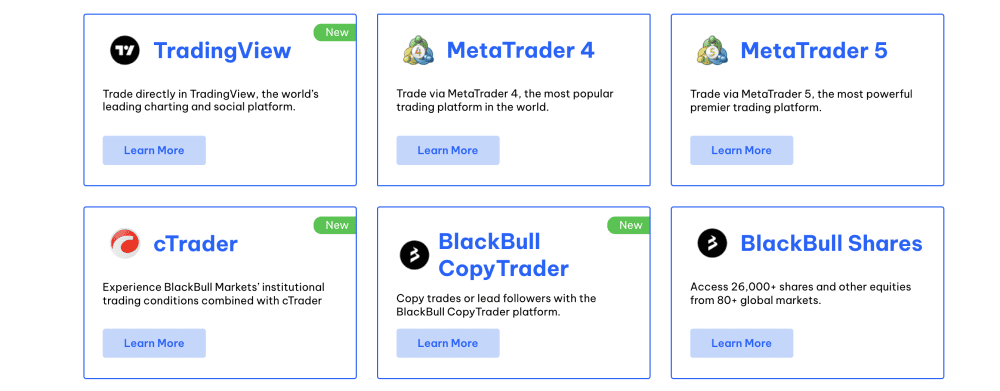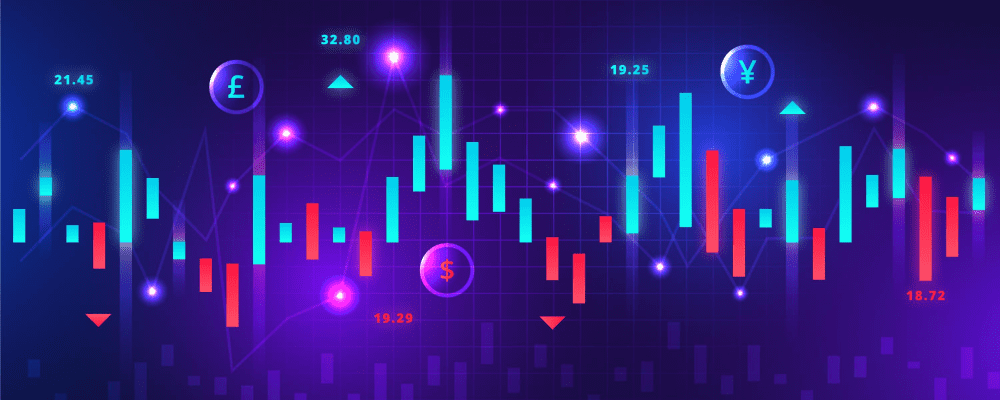A full guide on mastering trading strategies with BlackBull Markets

BlackBull Markets (later, simply BlackBull) is a prominent brokerage firm that has gained recognition for its commitment to providing traders with innovative tools and exceptional services. It stands out in the trading industry due to its dedication to transparency, reliability, and client satisfaction. Established with a vision to empower traders of all levels, BlackBull has built a reputation for excellence through its client-centric approach and robust trading infrastructure.
One of the key features distinguishing BlackBull is its strict adherence to regulatory standards. The broker is regulated by reputable authorities such as ASIC (Australian Securities and Investments Commission) and FMA (Financial Markets Authority), ensuring a secure and trustworthy trading environment for clients.
BlackBull offers competitive pricing with tight spreads and low commissions, enabling traders to optimize their trading costs and maximize profitability.
Blackbull’s trading platforms provide access to a wide range of advanced trading tools and technologies, including cutting-edge charting packages, customizable indicators, and algorithmic trading capabilities, catering to the diverse needs of traders.
- MetaTrader 4 (MT4): BlackBull offers the widely acclaimed MetaTrader 4 platform, known for its user-friendly interface, comprehensive charting capabilities, and extensive range of technical analysis tools. MT4 provides traders with access to a vast array of trading instruments, including forex, commodities, indices, and cryptocurrencies.
- MetaTrader 5 (MT5): In addition to MT4, BlackBull also supports the MetaTrader 5 platform, which offers enhanced features such as more advanced analytical tools, additional timeframes, and the ability to execute a wider variety of order types.
With BlackBull, you can assess the wide range of trading instruments:
- Forex: BlackBull provides access to the forex market, allowing traders to speculate on currency pairs from major, minor, and exotic categories. With competitive spreads and high liquidity, forex trading with BlackBull offers ample opportunities for profit.
- Commodities: Traders can also trade a variety of commodities through BlackBull, including precious metals like gold and silver, energy commodities such as crude oil and natural gas, as well as agricultural products like corn and wheat.
- Indices: BlackBull offers trading in global stock indices, enabling traders to participate in the performance of major equity markets worldwide. Popular indices such as the S&P 500, FTSE 100, and Nikkei 225 are among the available options.
- Cryptocurrencies: For those interested in the burgeoning cryptocurrency market, BlackBull provides access to a selection of digital assets, including Bitcoin, Ethereum, Litecoin, and Ripple, allowing traders to capitalize on the volatility and potential profit opportunities within this asset class.
In summary, BlackBull distinguishes itself as a reputable brokerage firm by prioritizing regulatory compliance, offering competitive pricing, providing advanced trading tools, and supporting a diverse range of markets through industry-leading platforms like MetaTrader 4 and MetaTrader 5. Traders can confidently engage with BlackBull knowing they have access to a secure and feature-rich trading environment conducive to achieving their financial goals.
In this guide, we’ll delve into the importance of selecting appropriate trading strategies and explore various methodologies tailored for trading with BlackBull. From fundamental and technical analysis to sentiment analysis and risk management, we’ll provide insights and techniques to empower traders to navigate the markets effectively and unlock their full trading potential with BlackBull by their side.
BlackBull Markets Fundamental analysis trading strategies

Fundamental analysis in trading is a methodology used by traders to evaluate the intrinsic value of an asset by examining various economic, financial, and qualitative factors that could impact its price.
Fundamental analysis focuses on understanding the underlying factors that drive the value of financial instruments, including currencies, commodities, stocks, and indices. It involves assessing economic indicators, geopolitical events, company financials, and market sentiment to make informed trading decisions. For traders with BlackBull, fundamental analysis provides valuable insights into market trends, helping them identify potential trading opportunities and manage risk effectively.
Fundamental analysis trading strategies
- News trading: News trading involves capitalizing on market volatility resulting from significant news events or economic data releases. Traders monitor news sources and economic calendars to identify high-impact events that could influence asset prices. By anticipating market reactions to the news, traders with BlackBull can enter positions ahead of price movements, aiming to profit from short-term fluctuations.
- Earnings reports’ analysis: Earnings reports provide valuable information about a company’s financial performance, including revenue, earnings per share (EPS), and future outlook. Traders analyze earnings reports to gauge the health and growth prospects of individual stocks, influencing their trading decisions. With BlackBull, traders can incorporate earnings analysis into their strategies, seeking opportunities to capitalize on stock price movements following earnings releases.
- Economic calendar utilization: Economic calendars list scheduled economic events, such as central bank meetings, employment reports, and GDP releases, along with their expected impact on the markets. Traders utilize economic calendars to plan their trading activities around key events, adjusting their positions based on the anticipated market reaction. By staying informed about economic developments, traders with BlackBull can navigate market volatility more effectively and make informed trading decisions.
Fundamental analysis is a crucial aspect of trading with BlackBull, providing traders with valuable insights into market dynamics and potential trading opportunities. Strategies such as news trading, earnings reports analysis, and economic calendar utilization enable traders to capitalize on fundamental factors that influence asset prices, enhancing their trading performance and risk management capabilities. By incorporating fundamental analysis strategies into their trading approach, traders with BlackBull can achieve greater success in the financial markets.
BlackBull Markets Technical analysis trading strategies

Technical analysis in trading is a method of evaluating securities and predicting price movements by analyzing statistical trends gathered from trading activity, such as price movement and volume. It focuses on past market data rather than fundamental factors like earnings or economic indicators.
Traders using BlackBull benefit from technical analysis as it provides insights into market trends, support, and resistance levels, and potential entry and exit points for trades. With BlackBull’s advanced charting tools and platforms like MetaTrader 4 and MetaTrader 5, traders can efficiently perform technical analysis to inform their trading decisions.
Technical analysis trading strategies
- Trend following: Trend following is a popular strategy that involves identifying and trading in the direction of prevailing market trends. Traders using BlackBull can employ trend following by analyzing price charts and utilizing technical indicators such as moving averages, trendlines, and the Average Directional Index (ADX) to confirm the strength and direction of trends. By entering trades aligned with the trend, traders aim to capture profits as prices continue to move in their favor.
- Chart patterns recognition: Chart patterns are formations that appear on price charts, indicating potential trend reversals or continuations. Traders with BlackBull can utilize chart patterns recognition to identify patterns such as head and shoulders, triangles, flags, and pennants. These patterns provide visual cues about market sentiment and can help traders anticipate future price movements.
- Indicator-based approaches: Indicator-based approaches involve using technical indicators to generate trading signals and confirm price trends. Traders with BlackBull have access to a wide range of technical indicators, including oscillators like the Relative Strength Index (RSI), Stochastic Oscillator, and MACD (Moving Average Convergence Divergence). These indicators help traders assess overbought or oversold conditions, momentum, and trend strength, providing valuable insights into market dynamics.
Technical analysis is a valuable tool for traders with BlackBull, enabling them to analyze market trends, identify trading opportunities, and make informed decisions based on historical price data. Strategies such as trend following, chart pattern recognition, and indicator-based approaches empower traders to navigate the markets effectively and achieve their trading goals with BlackBull’s advanced charting tools and platforms.
BlackBull Markets Sentiment analysis trading strategies

Sentiment analysis in trading aims to gauge the overall sentiment or mood of traders and investors toward a specific asset or market. It involves analyzing various factors such as news sentiment, social media sentiment, and market positioning, to assess market sentiment accurately. In trading with BlackBull, sentiment analysis helps traders gain a deeper understanding of market dynamics, identify potential trading opportunities, and manage risk effectively.
Sentiment analysis trading strategies
- Market sentiment gauging: Market sentiment gauging involves assessing the prevailing sentiment among market participants, whether bullish, bearish, or neutral. Traders with BlackBull can gauge market sentiment through various means, including analyzing price action, volume trends, and market breadth indicators. Additionally, sentiment surveys, such as the Investors Intelligence Sentiment Survey and the American Association of Individual Investors (AAII) Sentiment Survey, provide valuable insights into investor sentiment levels. By understanding market sentiment, traders can align their trading strategies accordingly and capitalize on shifts in sentiment for profitable trading opportunities.
- Social media analysis: Social media platforms like X (Twitter), StockTwits, and Reddit have become influential sources of market sentiment. Traders with BlackBull can analyze social media sentiment by monitoring discussions, sentiment indicators, and the frequency of mentions related to specific assets or markets. Sentiment analysis tools and sentiment scoring algorithms can help quantify social media sentiment and identify potential sentiment-driven trading opportunities.
- Sentiment indicators: Sentiment indicators are tools designed to measure market sentiment and provide actionable trading signals. Traders with BlackBull can utilize sentiment indicators such as the put/call ratio, the VIX (Volatility Index), and the Commitment of Traders (COT) report to gauge investor sentiment levels and identify potential market turning points. Additionally, sentiment indicators like the Fear and Greed Index and the CNN Business Fear & Greed Index provide insights into investor sentiment extremes, signaling potential contrarian trading opportunities.
Sentiment analysis is a valuable tool for traders with BlackBull, enabling them to assess market sentiment accurately and identify potential trading opportunities. Strategies such as market sentiment gauging, social media analysis, and sentiment indicators empower traders to gain insights into investor psychology and market dynamics, enhancing their trading performance and profitability.
BlackBull Markets trading risk management tools

Effective risk management is crucial for traders with BlackBull to safeguard their capital and sustain long-term profitability. Implementing sound risk management practices promotes consistency in trading performance, reducing the impact of individual losing trades on overall profitability.
Also, proper risk management instills discipline and confidence in traders, preventing emotional decision-making and fostering a focused and rational trading approach. By managing risk effectively, traders can sustain their trading activities over the long term, mitigating the risk of significant drawdowns and increasing the likelihood of achieving their trading goals with BlackBull.
BlackBull risk management techniques
- Stop-loss orders: A stop-loss order is a risk management tool that allows traders to specify a predetermined price level at which their positions will be automatically liquidated to limit potential losses. Traders with BlackBull can set stop-loss orders at strategic levels based on technical analysis, support and resistance zones, or volatility measures to manage risk effectively and protect their capital from adverse price movements.
- Position sizing: Position sizing involves determining the appropriate size of each trade based on a predefined percentage of the trader’s account balance or risk capital. Traders with BlackBull can use position sizing techniques such as the fixed percentage method or the Kelly criterion to allocate capital proportionally to each trade, ensuring that no single trade excessively exposes their account to risk. By adhering to proper position sizing principles, traders can optimize risk-adjusted returns and mitigate the impact of losing trades on their overall portfolio.
- Trading diversification: Diversification is a risk management strategy that involves spreading investment capital across multiple assets, markets, or trading strategies to reduce overall portfolio risk. Traders with BlackBull can diversify their portfolios by trading multiple instruments, asset classes, or timeframes, as well as incorporating different trading strategies with uncorrelated performance. Diversification helps mitigate the impact of adverse market conditions or individual trade failures, enhancing portfolio resilience and reducing overall risk exposure.
Risk management is paramount for traders with BlackBull to protect their capital, ensure consistent performance, and sustain long-term profitability. Techniques such as stop-loss orders, position sizing, and diversification empower traders to manage risk effectively and navigate the challenges of the financial markets with confidence.
How to start trading with BlackBull Markets

In trading, success hinges not only on market analysis and timing but also on employing effective strategies and risk management techniques. Throughout this comprehensive guide, we’ve delved into various trading strategies tailored to suit the diverse needs of traders, all within the context of trading with BlackBull.
From Fundamental analysis strategies that dissect economic indicators and earnings reports to Technical analysis approaches like trend following and chart pattern recognition, we’ve covered a spectrum of methodologies designed to empower traders with valuable insights and decision-making tools.
Also, Sentiment analysis strategies are significant, enabling traders to gauge market sentiment through social media analysis, sentiment indicators, and market sentiment gauging techniques. Understanding market sentiment provides a unique edge in navigating the markets with confidence and agility.
BlackBull is committed to providing traders with a secure, transparent, and feature-rich trading environment. The brokers’ advanced trading platforms, competitive pricing, and exceptional customer support are tailored to empower traders of all levels to achieve their financial goals.
So, whether you’re a seasoned trader or just starting your trading journey, we invite you to explore these strategies with BlackBull. Open an account today through the link below and embark on a journey towards trading success with confidence and conviction.
Mastering trading strategies with BlackBull Markets - FAQ